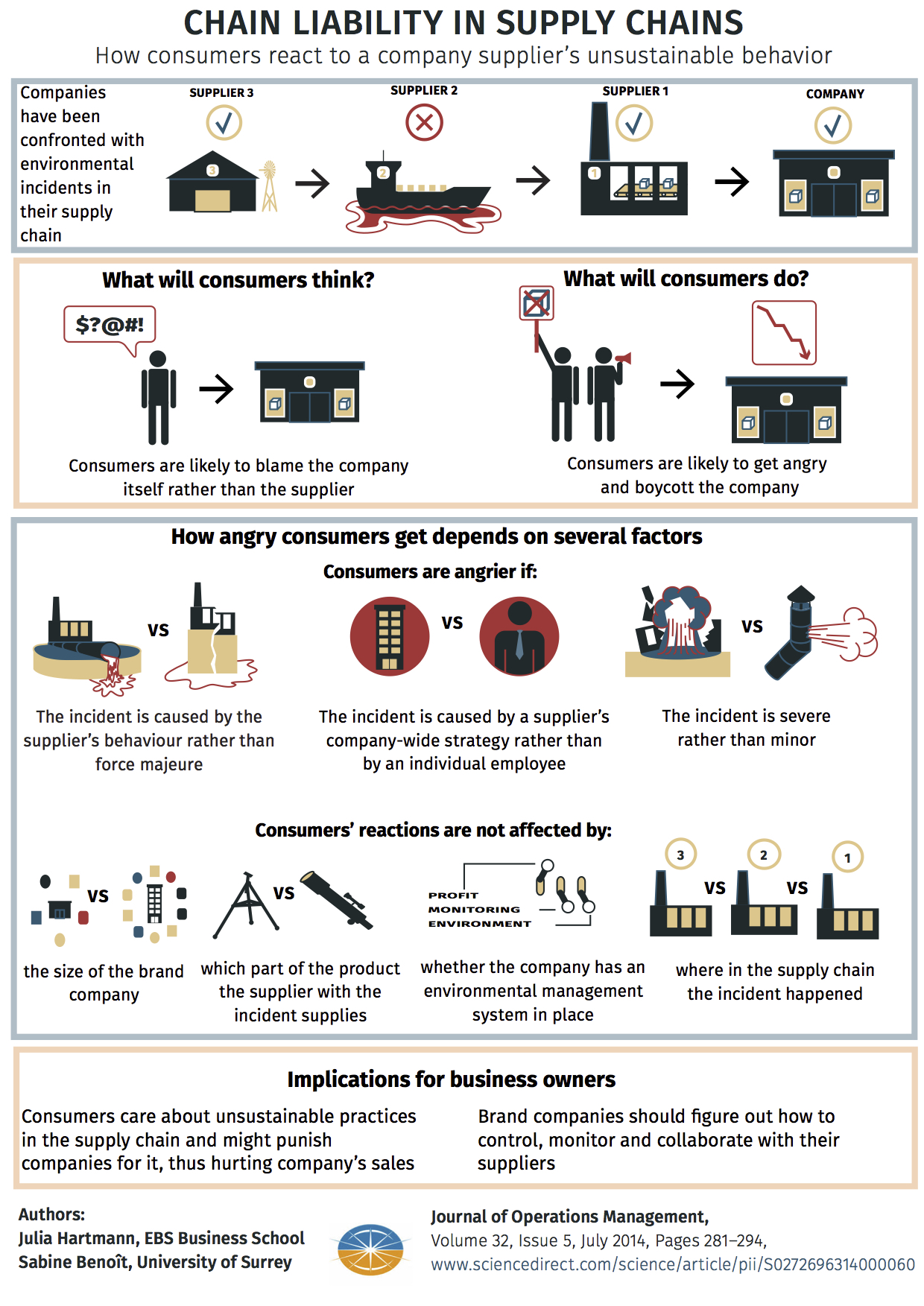Will consumers punish companies for wrongdoing of a supplier?
Exploring the notion of “chain liability”
Summary of my research
This research investigates the question whether consumers will punish companies for wrongdoing of a supplier? We know that when it becomes publicly known that products are associated with suppliers that engage in unsustainable behaviors, consumers protest, as Nestlé, Zara, and Kimberly Clark.
The phenomenon by which consumers hold firms responsible for the unsustainable behavior of their upstream partners suggests the notion of “chain liability.” This study aims to generate insights into the antecedents and consequences of such consumer responsibility attributions.
In four experiments, the authors find that the chain liability effect increases if an environmental degradation incident (1) results from supplier behavior rather than force majeure, (2) results from a company decision rather than the decision of an individual employee, and (3) is more severe.
Responsibility attributions do not differ with varying organizational distance from the supplier, firm size, strategic importance of the supplied product, or the existence of environmental management systems. The chain liability effect also creates strong risks for the focal firm; higher responsibility attributions increase consumers’ anger and propensity to boycott. Therefore, firms should work to ensure sustainable behavior throughout the supply chain, to protect them from chain liability.
